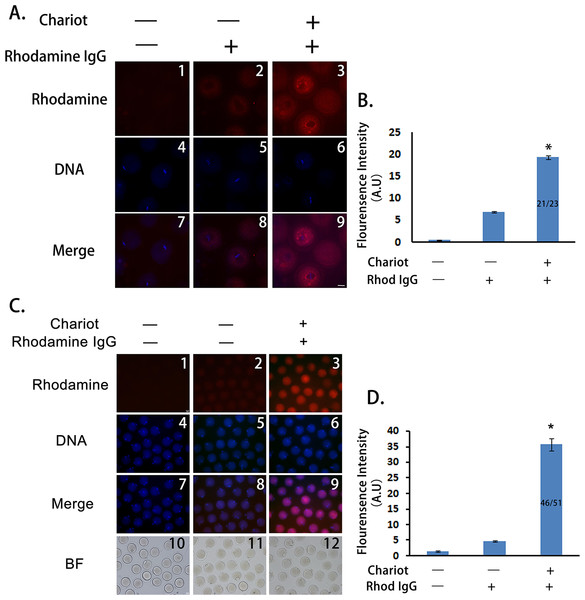
Female meiosis is a fundamental area of study in reproductive medicine, and the mouse oocyte model of in vitro maturation (IVM) is most widely used to study female meiosis. To investigate the probable role(s) of an unknown protein in female meiosis, the method traditionally used involves microinjecting a specific antibody into mouse oocytes. Recently, in studies on somatic cells, peptide nanoparticle-mediated antibody transfection has become a popular tool because of its high efficiency, low toxicity, good stability, and strong serum compatibility. However, untill now no researchers have tried using this technique on mouse oocytes because the zona pellucida surrounding the oocyte membrane (vitelline membrane) is usually thought or proved to be a tough barrier to macromolecules such as antibodies and proteins. Therefore, we attempted to introduce an antibody into mouse oocytes using a peptide nanoparticle. Here we show for the first time that with our optimized method, an antibody can be effectively delivered into mouse oocytes and inhibit its target protein with high specificity. We obtained significant results using small GTPase Arl2 as a test subject protein. We propose peptide nanoparticle-mediated antibody transfection to be a superior alternative to antibody microinjection for preliminary functional studies of unknown proteins in mouse oocytes.
from #MedicinebyAlexandrosSfakianakis via xlomafota13 on Inoreader http://ift.tt/1V32NH2
via
IFTTT
Δεν υπάρχουν σχόλια:
Δημοσίευση σχολίου